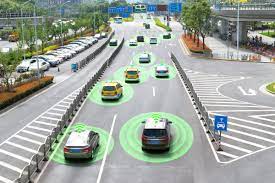The Rise of Autonomous Vehicles
In recent years, the automotive industry has witnessed a significant transformation with the emergence of autonomous vehicles. These self-driving cars, equipped with advanced sensors and artificial intelligence, have the potential to revolutionize transportation as we know it. In this article, we explore the impact of autonomous vehicles on our roads and society as a whole.
The Evolution of Autonomous Technology
1. From Science Fiction to Reality
- The concept of autonomous vehicles has long been a staple of science fiction, depicted in movies and literature as futuristic modes of transportation. Today, this once-fictional technology has become a reality, with leading automotive companies and tech giants investing heavily in the development of self-driving cars.
2. Advancements in Artificial Intelligence
- At the heart of autonomous vehicles is artificial intelligence (AI), which enables these cars to perceive their surroundings, make decisions in real-time, and navigate safely through traffic. Machine learning algorithms continuously analyze data from sensors, cameras, and GPS to improve driving performance and ensure passenger safety.
The Benefits of Autonomous Vehicles
1. Enhanced Safety
- One of the most significant advantages of autonomous vehicles is their potential to reduce accidents and fatalities on the roads. By eliminating human error, such as distracted driving and impaired judgment, self-driving cars have the potential to save thousands of lives each year and prevent countless injuries.
2. Increased Efficiency
- Autonomous vehicles promise to make transportation more efficient by optimizing routes, reducing congestion, and minimizing travel times. With interconnected systems and real-time traffic data, self-driving cars can navigate complex road networks with ease, allowing for smoother traffic flow and reduced fuel consumption.
3. Improved Accessibility
- For individuals with disabilities or limited mobility, autonomous vehicles offer newfound independence and freedom. Self-driving cars can provide accessible transportation options, allowing people to travel safely and conveniently without relying on traditional modes of transportation or assistance from others.
Challenges and Considerations
1. Regulatory Frameworks
- As autonomous vehicles become more prevalent on our roads, policymakers and regulators must establish clear guidelines and regulations to ensure their safe and responsible deployment. Issues such as liability, insurance, and ethical considerations must be addressed to mitigate potential risks and ensure public trust in autonomous technology.
2. Infrastructure Upgrades
- The widespread adoption of autonomous vehicles will require significant upgrades to our existing infrastructure, including road signage, traffic signals, and communication networks. Investments in smart infrastructure are essential to support the integration of self-driving cars and maximize their benefits.
Embracing the Future of Transportation
The era of autonomous vehicles represents a paradigm shift in the way we think about transportation, offering the promise of safer, more efficient, and more accessible mobility for all. While there are challenges to overcome and questions to address, the potential benefits of self-driving cars are undeniable. By embracing innovation and collaboration, we can pave the way for a future where autonomous vehicles play a central role in shaping our cities and communities.




